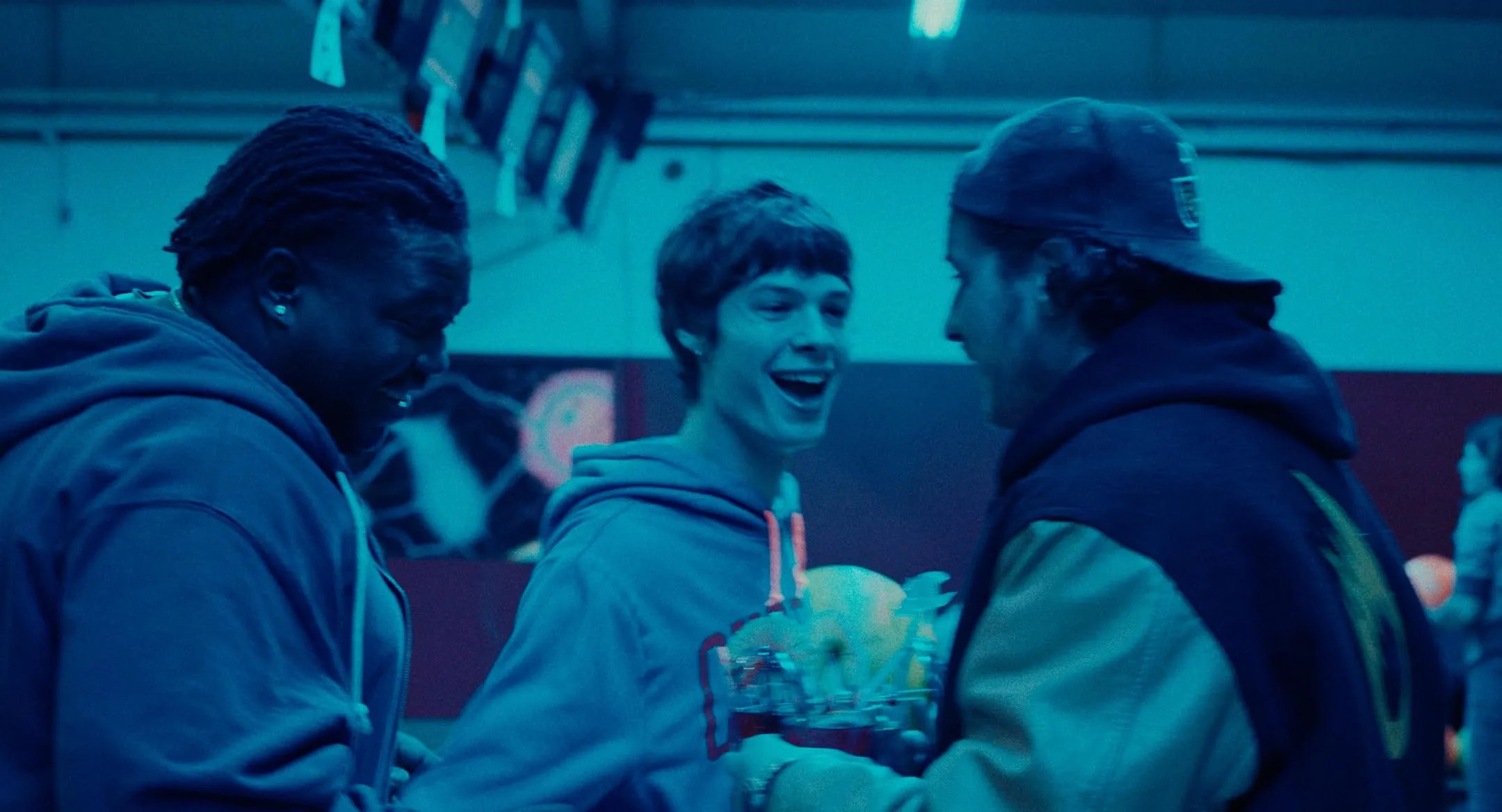In the forgotten corners of post-industrial France, within a region starkly named the “empty diagonal,” life for Mika and Daniel has stalled. The two friends, now in their late twenties, exist in a state of suspended adolescence, their days dissolving into a haze of cheap liquor and smoke.
Their bond, forged in the inertia of their hometown of Saint-Dizier, is the film’s magnetic center. This is a place where shuttered factories stand as monuments to a bygone prosperity, and the air itself feels thick with a specific kind of European melancholy. Director Hubert Charuel sets his stage not with grand exposition, but with the quiet observation of their shared aimlessness.
Their world is small, their prospects smaller, but their connection feels immense. Yet, there is a fragility to their co-dependence, a sense that the slightest pressure could fracture a bond that has been their only constant. A single, thoughtless act hangs in the air, ready to shatter their static world.
The Feline Catalyst
The act that ruptures their reality is both absurd and deeply revealing: the impulsive theft of a prize-winning Maine Coon cat. It is a plan born not of malice but of a profound boredom, a desperate grasp for agency in a world that offers none. This is no quirky caper, however.
The consequences are immediate and severe. Their arrest brings the full weight of the French legal system down upon them, transforming a foolish whim into a life-altering crisis of fines and potential prison time. This incident becomes the pivot upon which their lives turn in opposite directions.
For Mika, the sharp shock of accountability is a wake-up call, an impetus to finally confront their stagnant existence and pursue sobriety. For Daniel, the same event is a breaking point. It precipitates a collapse, pushing him deeper into a self-destructive pattern that is given a terrifyingly tangible form when a doctor delivers a stark ultimatum: his advanced alcoholism will be fatal if he does not stop drinking. The stakes are no longer about youthful misadventure; they are about life and death.
The Toxicity of Place and Person
Seeking a veneer of stability for the courts, the pair find work through their friend Tony at a local nuclear waste plant. The choice of location is a masterstroke of symbolic storytelling. The plant is a vast, dehumanizing landscape of concrete and steel, a physical manifestation of the invisible poisons affecting the characters.
It mirrors the economic decay of their town, the radioactive half-life of their prospects, and the insidious toxicity of Daniel’s addiction. As Mika commits to sobriety with a desperate earnestness, Daniel’s own efforts are a facade; he begins hiding his drinking, creating a chasm of deceit between them. The visual storytelling powerfully contrasts the oppressive, alienating geometry of the work site with the cramped intimacy of their apartment.
Tony, a figure of grounded ambition, operates as a narrative counterweight. He navigates this same bleak reality not with reckless abandon but with a determined pragmatism, his presence highlighting the different paths available to those born into the same circumstances. The film digs into this dynamic, examining a loyalty that borders on self-sabotage.
A Portrait of Inevitable Decay
The film rests on the powerful chemistry between Paul Kircher as Mika and Idir Azougli as Daniel. They portray a bond that swings between boisterous masculine energy and moments of profound, unspoken tenderness. Their performances make the friendship’s slow disintegration feel both authentic and agonizing.
As the more pragmatic Tony, Salif Cissé offers a commanding, grounded presence that anchors the film’s social realism. The cinematography excels in capturing this world of contrasts, placing the warmth of the friends’ shared history against the cold, brutalist architecture of their present reality. The film’s mood is relentlessly downbeat, a deliberate choice that immerses the viewer in the characters’ hopelessness.
It is not a simple story about the dangers of addiction, but a deeply humane and sorrowful portrait of a relationship’s end. It explores the painful truth that some connections, however deep, cannot withstand the combined pressures of personal demons and a world that has already passed judgment. It is a story about the particular grief of watching someone you love choose a path toward oblivion.
Meteors premiered in the Un Certain Regard section at the 2025 Cannes Film Festival, showcasing rural French landscapes and human resilience.
Full Credits
Director: Hubert Charuel
Writers: Hubert Charuel, Claude Le Pape
Producers and Executive Producers: Stéphanie Bermann, Alexis Dulguerian
Cast: Paul Kircher, Idir Azougli, Salif Cissé
Director of Photography (Cinematographer): Jacques Girault
Editors: Julie Picouleau
Composer: Maxime Denuc
The Review
Meteors
Meteors is a poignant and unflinching portrait of a friendship disintegrating under the weight of addiction and circumstance. Anchored by powerful lead performances and a deeply atmospheric sense of place, the film masterfully uses its bleak, post-industrial setting to mirror the characters' internal decay. While its deliberate pace and grim tone make for a challenging watch, it is a rewarding and humane study of loyalty and loss, capturing a specific, often unseen, facet of contemporary France with devastating honesty.
PROS
- Powerful and authentic lead performances.
- Strong, atmospheric cinematography that establishes a palpable sense of place.
- Intelligent use of setting as a metaphor for internal and societal decay.
- A humane and deeply honest exploration of friendship and addiction.
CONS
- The relentlessly grim and downbeat tone can be emotionally taxing.
- Its deliberate, character-focused pacing may feel slow to some viewers.
- The narrative offers little hope or catharsis, which is by design but can be difficult.
